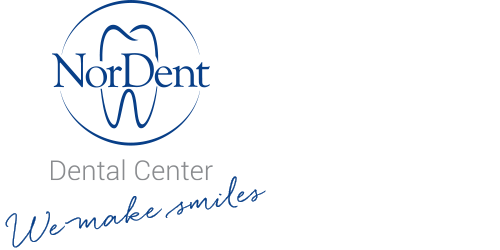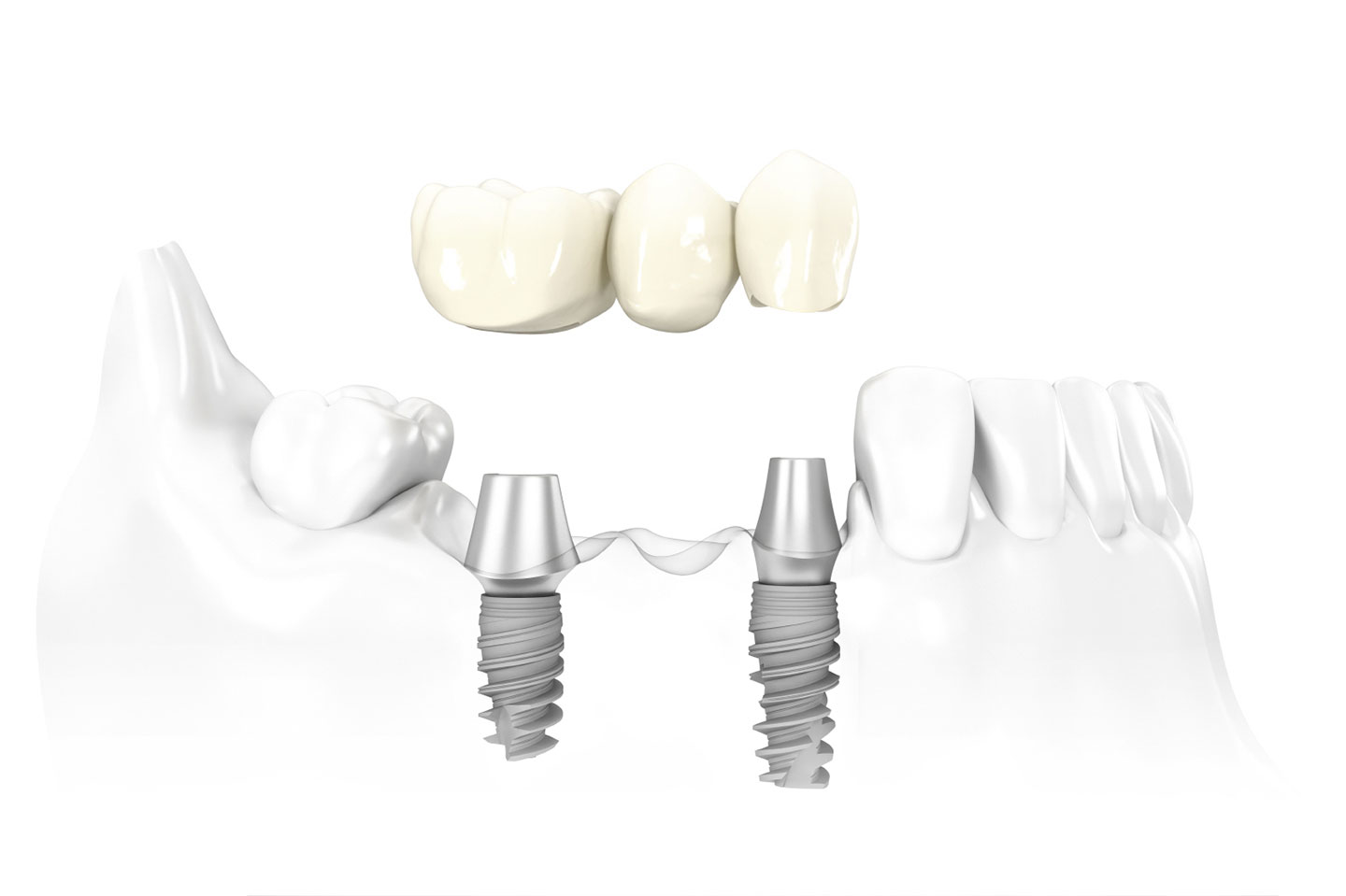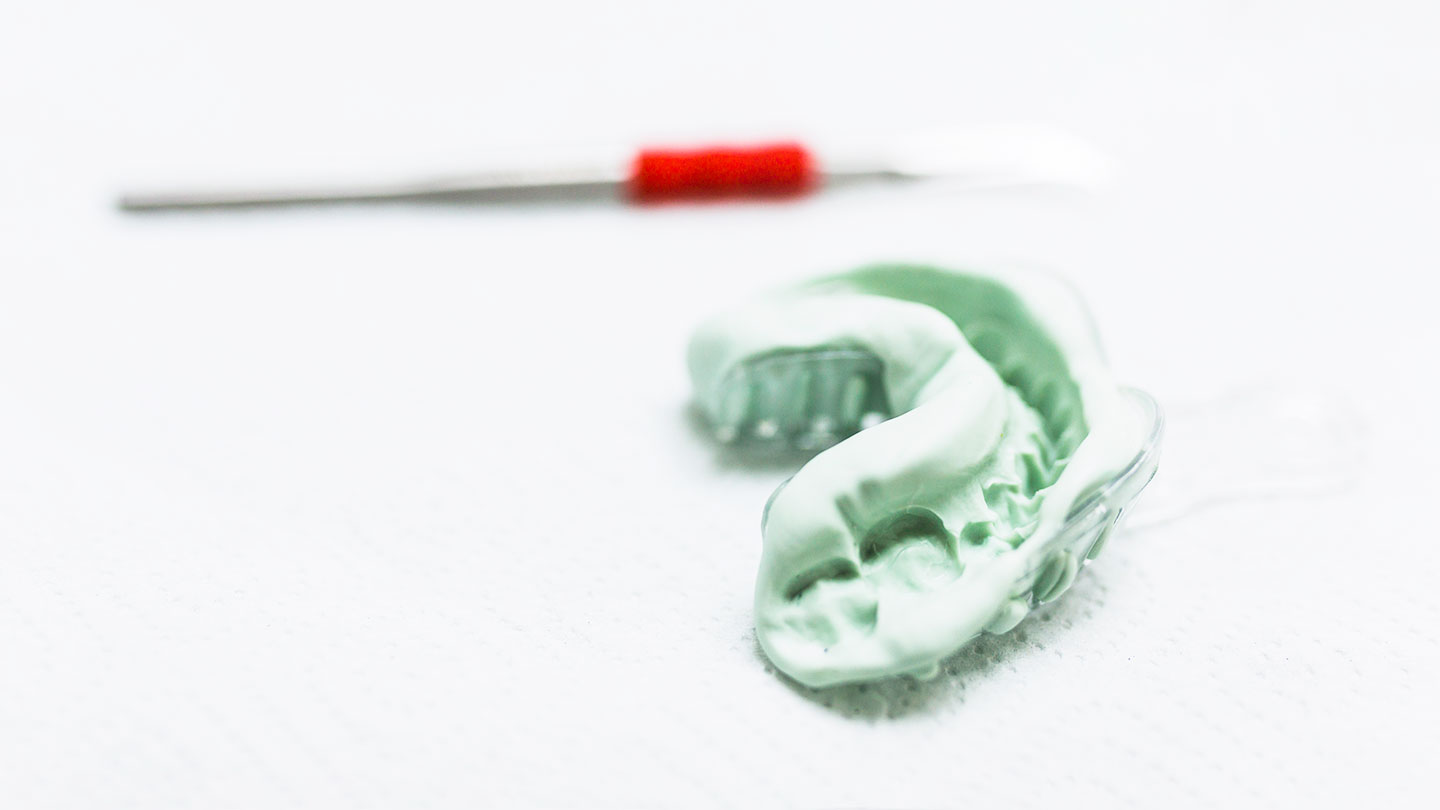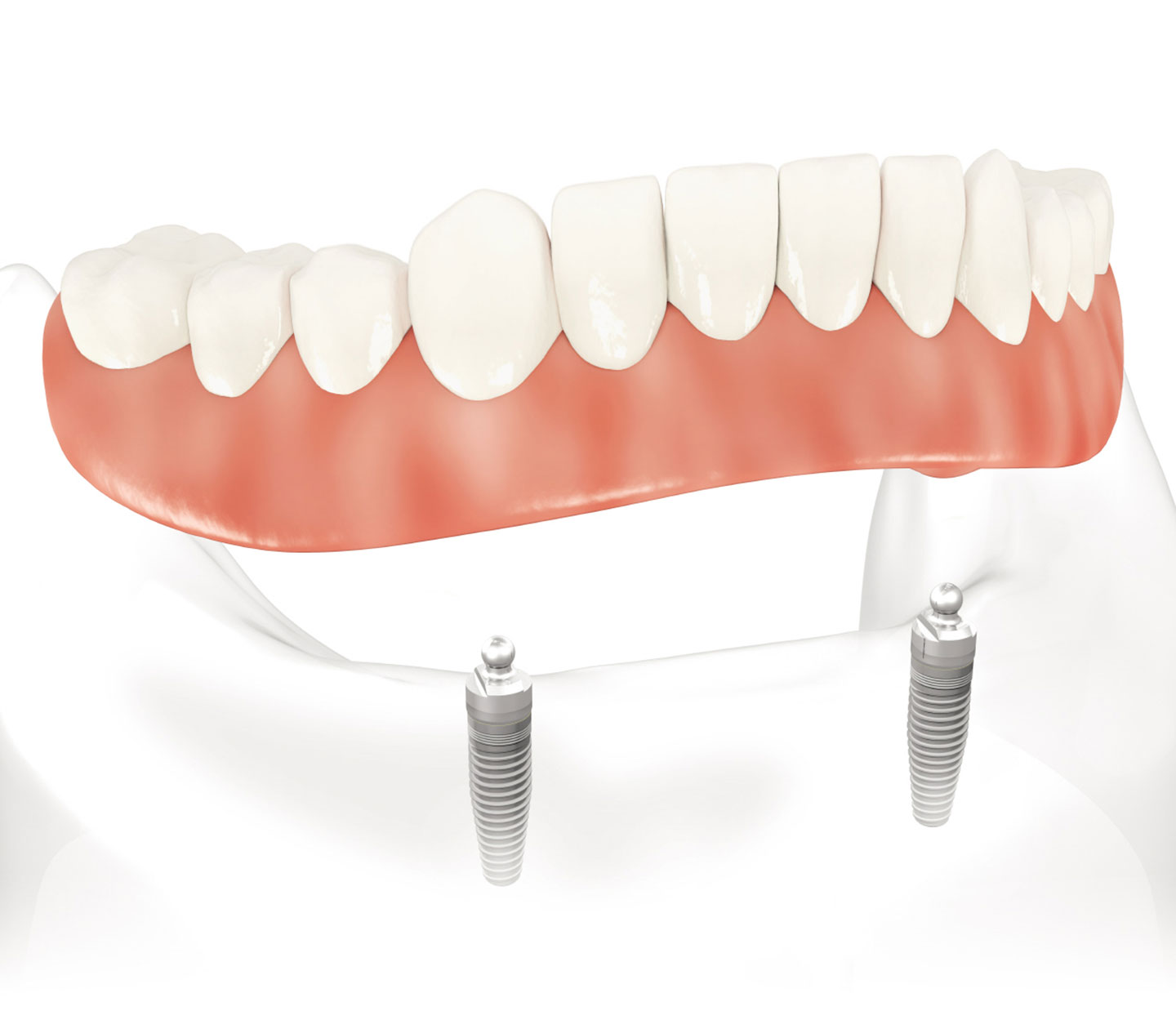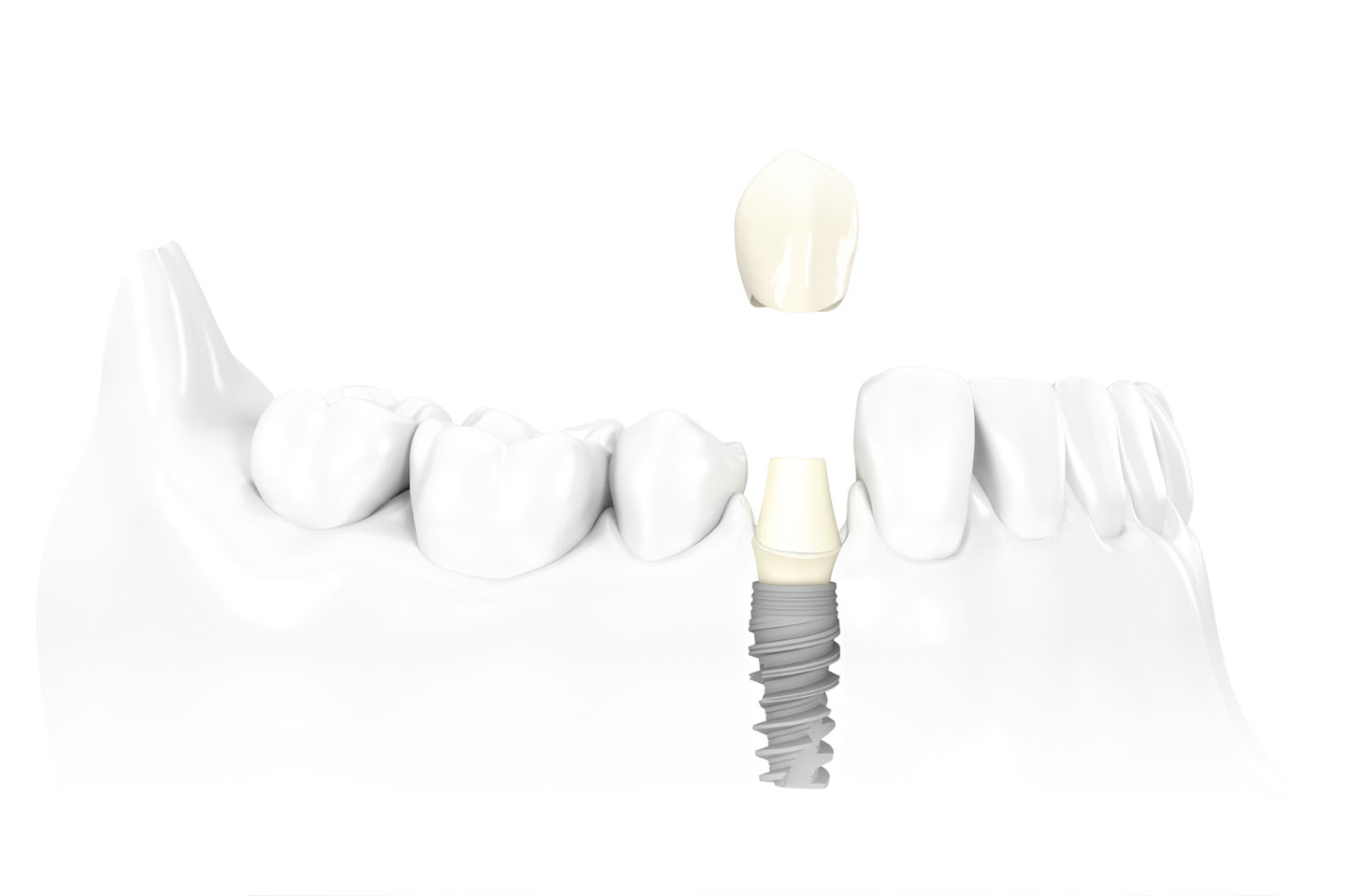Dental implants
Dental implants are inserted into the bone tissue of the upper or lower jaw using certain surgical procedures, therefore replacing the missing tooth root. Subsequent dental procedures are used to create the supra-structure on that implant, and the dental crown is made.
Almost all patients are candidates for dental implants today regardless of their age, although certain conditions represent an increased risk – certain underlying diseases may represent a relative contraindication for dental implants. These are diabetes mellitus, osteoporosis, malignant diseases, a recent heart attack or stroke, or other metabolic diseases, as well as certain kidney diseases. Certain local factors, such as poor oral hygiene, the presence of an infection, and others may represent a relative contraindication for implantology. Passionate smokers are also at an increased risk of failure.
Dental implantation is a simple procedure performed under local anaesthesia or analgosedation.
After the preoperative preparation, including the full remediation of the oral cavity, as well as different measurements of the height and quality of the jaw bone, an X-ray image, and frequently some other procedures, the completely painless procedure of implantation is initiated.
Indications for implants may be:
- Restoration of one tooth,
- restoration of several teeth, and
- restoration of all lost teeth.
In some cases, it is possible to insert the implants and make dental crowns or bridges in the same act, but in most cases, the procedure is two-phase, meaning that after a certain period following the implantation, the crowns are made, depending on whether it is the upper or the lower jaw, and some other factors. The lack of available bone for the implant, either in the upper or the lower jaw, is a very frequent issue. In those cases, for the upper jaw, it is necessary to make a “sinus lift”, elevate the maxillary sinus base, and place the artificial or autologous bone in the existing space, and for the lower jaw, special surgical techniques also enable the required alveolar ridge height.
In our Clinic, several implant systems from global brands, such as Nobel Biocare (Sweden) and Alpha-Bio (Israel), are inserted, and they are also registered in our country, and as such approved for use by the Serbian Ministry of Health
Implantology and the guarantee for the inserted implants
Oral implantation is a team project including a surgeon, prosthetician, dental technician and patient. All the links in this chain have to function flawlessly if we want to have a long-lasting dental implant. Oral implantation is the most successful implantation in medicine and it has a success rate of over 95%, if certain conditions are met. These conditions imply a certain quality and amount of available bone, flawless surgical implantation technique, insertion of the best dental implants, high-quality prosthetic work, and the cooperation of the patient. This cooperation includes flawless oral cavity hygiene and regular follow-ups several times a year for the first year following the implantation. The patients will receive the best dental implant from Nobel Biocare or AlphaBio at NorDent Clinic. The Nobel Biocare and AlphaBiocare dental implants are the world’s leading dental implants according to their performance, and they are inserted following all the principles and protocols required by the manufacturer.
We have inserted numerous implants in our clinical practice for the patients under an increased risk for their long-term duration. These are the patients with diabetes mellitus, osteoporosis, with insufficient bone height and width, or who are passionate smokers. The implantation has mostly been successful with these patients too, but as these conditions are beyond our influence, we cannot provide long-term guarantees. We can, however, guarantee to do our best to make the implantation successful.
If the implant falls out, the patient is absolutely entitled to a new implant, and this guarantee applies to all. The patient is obliged to keep that implant and bring it to the Clinic.
The guarantee is not valid if another doctor, without our knowledge and consent, takes out the inserted implants or suggests that the patient has it done, if someone else performs any kind of surgical or dental procedures that may threaten the osseointegration of the implant. The guarantee is not valid for passionate smokers and persons who do not maintain good personal hygiene, manifested by the creation of dental plaque and tartar that directly threaten the survival of the implant.
Only excellent cooperation between doctor and patients ensures the long-term survival of the implant, and regarding the surgical technique, the materials the implants are made of, and good prosthetic work, failure is reduced to a minimum.
